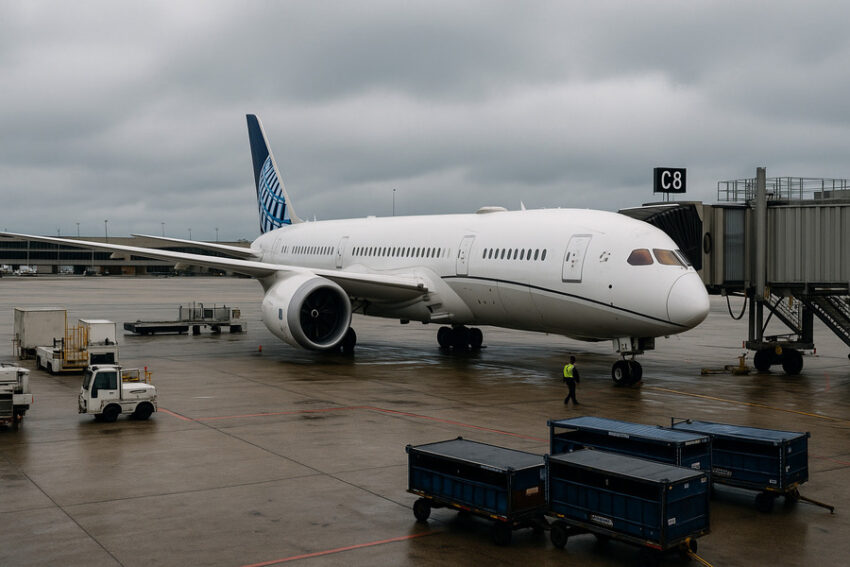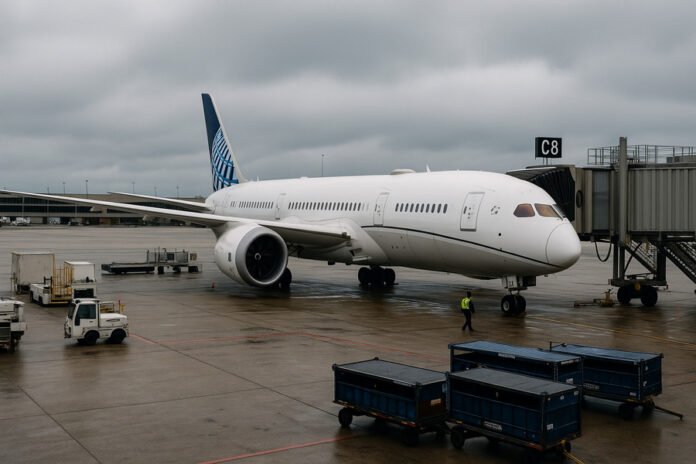Thursday, June 19, 2025

US travel bookings slumped in May 2025 as business and leisure air travel demand fell sharply, resulting in a combined thirteen percent drop in tickets issued through traditional travel agencies, according to new data released by ARCcorp (Airlines Reporting Corporation). The decline was driven by an eight percent decrease in corporate travel bookings and a five percent fall in leisure bookings, reflecting broader shifts in traveler behavior, rising cost-consciousness, and the growing dominance of online booking platforms. While the overall number of passenger trips held steady at nearly 25.8 million, the sharp downturn in agency-driven bookings points to a deeper change in how Americans are planning and purchasing their flights. With more companies opting to limit business travel and vacationers seeking cheaper, more flexible self-service options, the traditional agency model is facing mounting pressure as the summer travel season gets underway.
The U.S. travel sector took a hit in May 2025, as new data reveals that air travel bookings through traditional agencies dropped significantly. According to the latest monthly report from Airlines Reporting Corporation (ARC), business travel bookings declined 8 percent year over year, while leisure travel dropped 5 percent, resulting in a combined 13 percent fall in bookings through corporate and leisure travel agencies. This booking slump reflects shifting trends in traveler behavior as the industry enters peak summer travel season.
Booking Trends Reveal Sharp Declines in Traditional Channels
U.S.-based travel agencies processed 25.76 million passenger trips in May 2025 — nearly identical to the 25.67 million trips recorded in May 2024. However, the stability in trip volume masks deeper problems. Bookings issued through corporate travel agencies fell 8 percent, while leisure-focused agencies posted a 5 percent drop. The decline highlights a pullback in both work-related and vacation travel managed through traditional in-person booking channels.
By contrast, online travel agencies (OTAs) saw their bookings rise 8 percent year over year, signaling a steady shift toward self-managed, digital-first travel planning. Travelers appear increasingly comfortable managing their itineraries through online platforms and mobile apps, especially in a price-sensitive market.
Corporate Travel Suffers Most Amid Business Caution
Corporate air travel continues to struggle. Despite predictions that 2025 would mark a full return to office-based operations and business mobility, business travel has not bounced back at the pace many had hoped. ARC’s data confirms that business-focused agencies saw the steepest decline among all booking channels, down 8 percent from the previous year.
As companies weigh return-on-investment on in-person meetings and navigate tighter budgets, more businesses are sticking to virtual alternatives. This decline in corporate travel is especially impactful for airlines that rely on higher-margin business-class bookings and flexible, short-notice ticket sales.
Leisure Travel Softens Despite Stable Passenger Volume
Leisure travel also showed signs of weakening in May. Though many Americans are still flying, leisure agency bookings dropped 5 percent compared to May 2024. The drop could be attributed to economic caution among households, rising living costs, and a growing preference for booking directly or through OTAs to secure better deals.
Still, total domestic trips held steady at 16.17 million, down just 0.12 percent year over year. Meanwhile, international trips increased slightly to 9.59 million, up 0.90 percent from May 2024, indicating that long-haul leisure demand remains relatively healthy.
Revenue Declines Despite Flat Passenger Numbers
While traveler volume was flat, ticket sales revenue fell sharply. Total sales processed through ARC reached $8.58 billion in May 2025, representing a 4.94 percent decline from the $9.03 billion posted in May 2024.
The drop in revenue is even more evident when broken down:
- Domestic airfare revenue dropped from $3.31 billion to $3.21 billion, a 2.98 percent decrease.
- International airfare revenue fell from $3.68 billion to $3.35 billion, a steep 9.10 percent decline, making it the largest drop across all tracked categories.
Overall, total fare revenue, combining both markets, dropped 6.20 percent to $6.56 billion. The numbers suggest that while people are still flying, they’re doing so more affordably — choosing cheaper routes, discount carriers, or limited-service fares.
Average Ticket Prices Continue to Slide
The average ticket price across all cabin classes stood at $530, down 2 percent compared to May 2024. Within that:
- Economy class tickets averaged $462, down 2 percent month-over-month, but up 1 percent year-over-year.
- Premium class fares reached $1,201, showing a 2 percent monthly dip, but a 2 percent increase from May 2024.
These trends confirm that airlines are offering more aggressive pricing, especially in premium classes, likely to stimulate demand or compete with growing international routes and OTA discounting.
Cash Transactions Climb as Credit Sales Shrink
ARC’s report also revealed an interesting payment trend. While credit card-based ticket sales dropped slightly by 0.65 percent, cash ticket sales jumped 9.31 percent year over year, totaling 2.56 million trips. This could indicate more use of consolidators, budget travelers using cash payments through agencies, or group bookings managed outside traditional channels.
NDC Adoption Continues to Grow
ARC also tracked significant growth in New Distribution Capability (NDC) usage. In May 2025, 21.5 percent of all transactions were NDC-enabled, up from 20.3 percent in May 2024. A total of 948 travel agencies reported NDC transactions, reflecting continued airline investment in modernizing how tickets are sold and packaged — giving customers more control over ancillaries and pricing.
Detailed Breakdown of Key ARC Metrics for May 2025:
| Category | May 2025 | May 2024 | % Change YoY |
|---|---|---|---|
| Total Sales | $8.58 billion | $9.03 billion | –4.94% |
| Total Passenger Trips | 25,761,146 | 25,674,031 | +0.26% |
| Domestic Passenger Trips | 16,168,487 | 16,188,488 | –0.12% |
| International Passenger Trips | 9,592,659 | 9,485,543 | +0.90% |
| Total Fare Revenue | $6.56 billion | $6.99 billion | –6.20% |
| Domestic Fare Revenue | $3.21 billion | $3.31 billion | –2.98% |
| International Fare Revenue | $3.35 billion | $3.68 billion | –9.10% |
| Average Ticket Price | $530 | $540+ (est.) | –2% |
| Economy Ticket Price | $462 | N/A | +1% YoY / –2% MoM |
| Premium Ticket Price | $1,201 | N/A | +2% YoY / –2% MoM |
| Online Travel Agency Bookings | N/A | N/A | +8% |
| Corporate Agency Bookings | N/A | N/A | –8% |
| Leisure Agency Bookings | N/A | N/A | –5% |
| NDC Share of Bookings | 21.5% | 20.3% | +1.2% |
| Cash-Based Passenger Trips | 2,565,381 | N/A | +9.31% |
U.S. air travel bookings fell sharply in May 2025 as business travel dropped eight percent and leisure bookings declined five percent, leading to a combined thirteen percent slump driven by tighter corporate budgets and a growing shift toward online self-booking, according to ARCcorp.
The Big Picture: A Market in Transition
The May 2025 data paints a picture of a resilient but evolving U.S. air travel market. Travelers are still flying, but how they book, how much they pay, and who they rely on for planning is changing rapidly. Traditional agencies are seeing a clear drop in activity—especially in business travel—and online platforms are steadily gaining market share.
As airlines navigate a complex environment of changing consumer habits, pricing competition, and technological shifts, the pressure is on to adapt. Meanwhile, travel agencies—especially those focused on corporate and leisure markets—will need to pivot or diversify their strategies to keep pace with where and how today’s travelers are booking their next trip.







